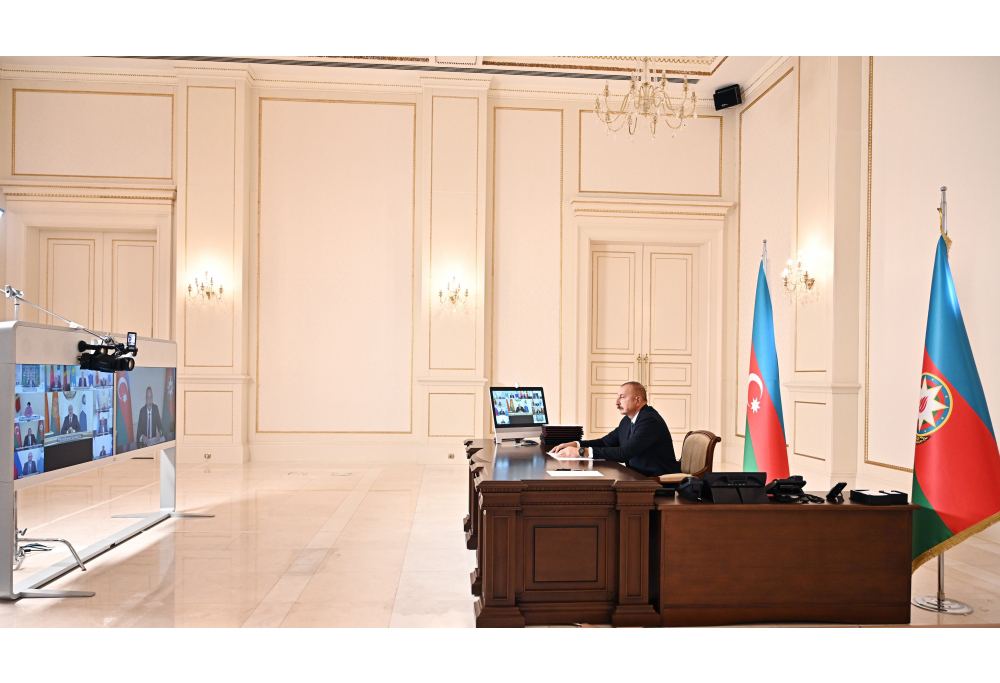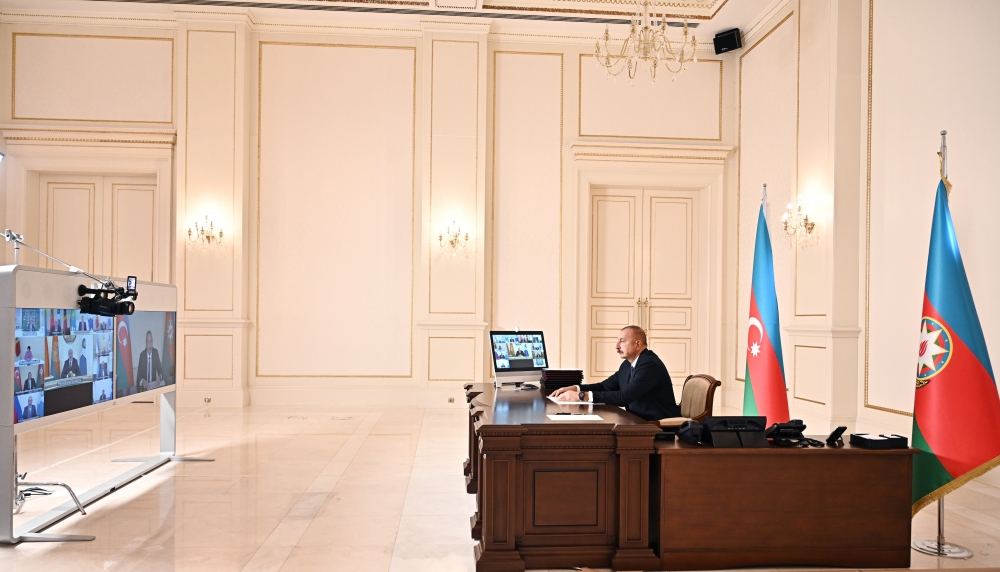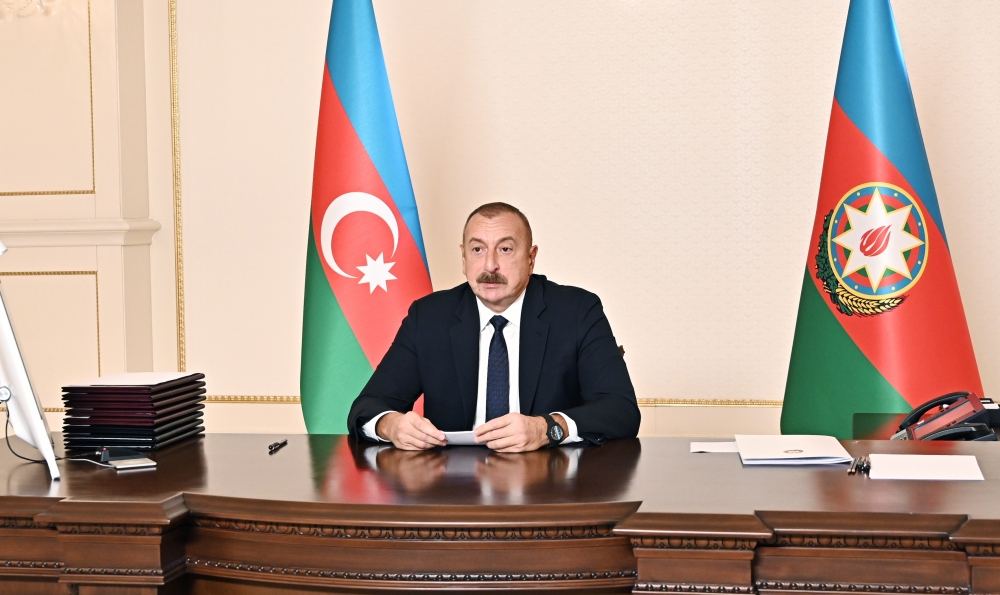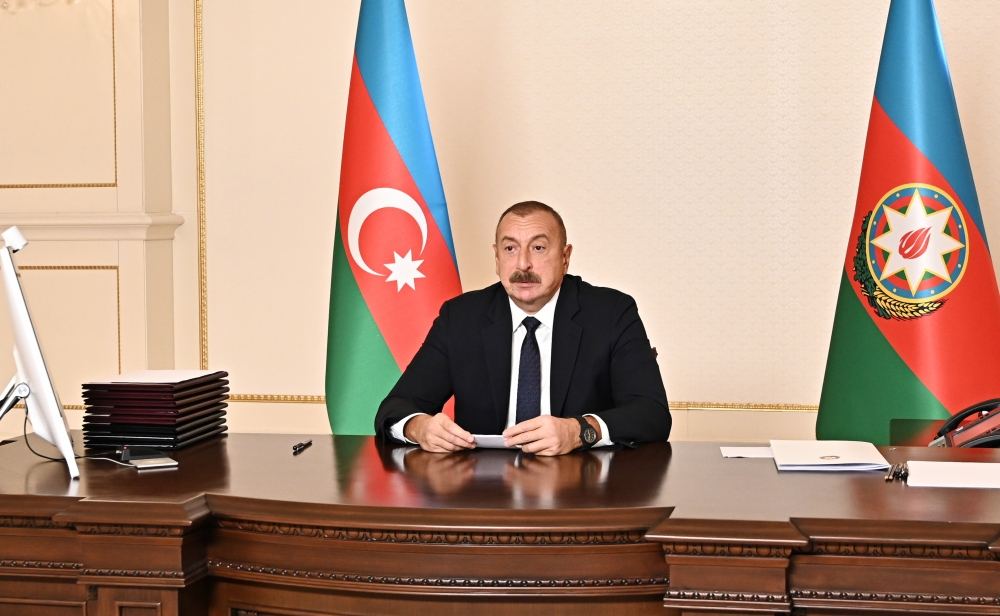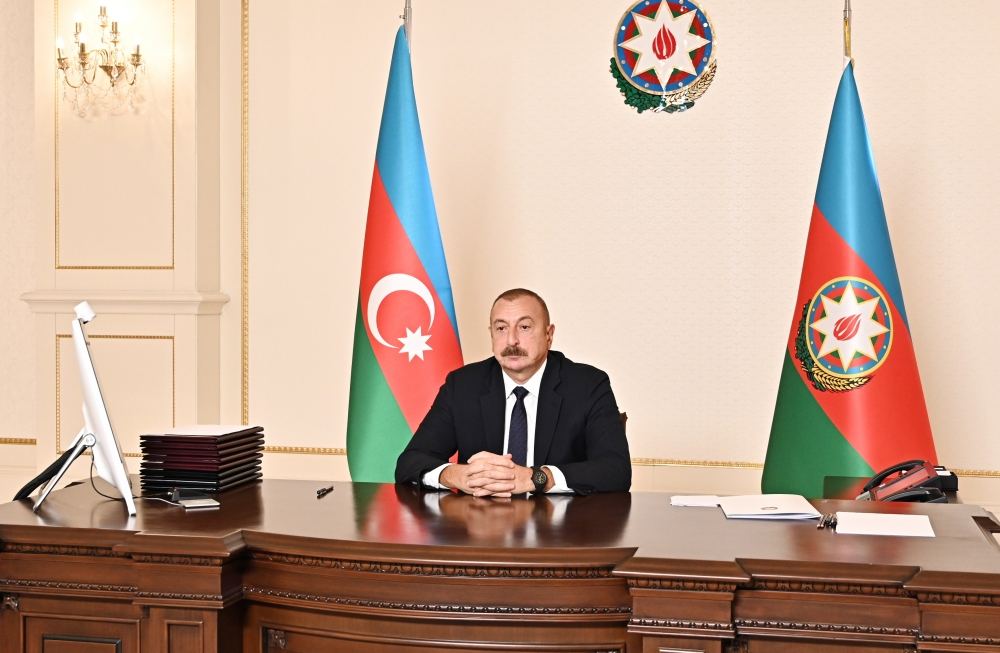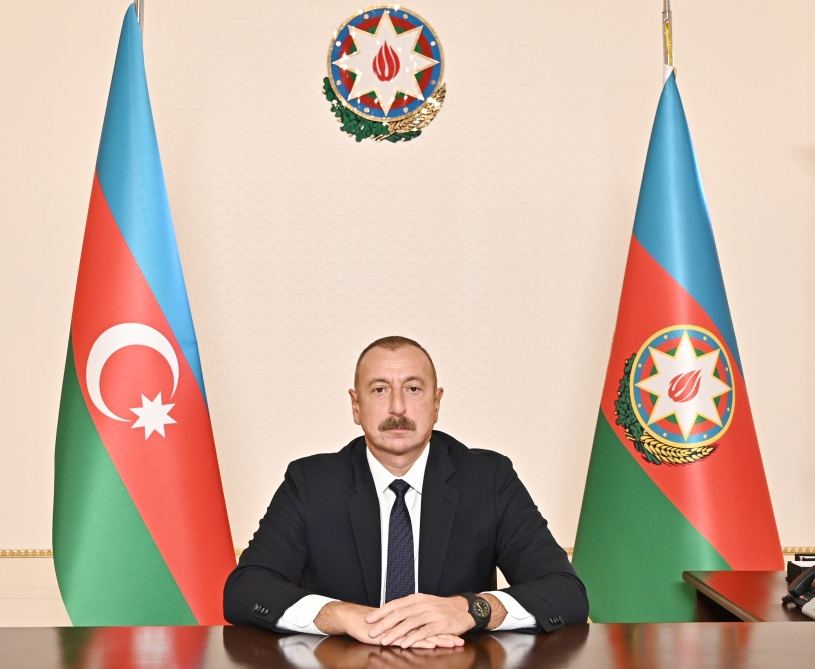BAKU, Azerbaijan, Oct. 15
Trend:
President of the Republic of Azerbaijan Ilham Aliyev has attended a session of the Council of Heads of State of the Commonwealth of Independent States held in the format of a video conference.
President of Belarus Alexander Lukashenko briefed the meeting participants on the agenda, highlighted the events held during his country’s presidency in the CIS and expressed his gratitude to member countries for the support provided to Belarus during its leadership of the organization. The President of Belarus noted that the current meeting of the Council of Heads of State of the Commonwealth of Independent States held in the format of a videoconference was quite significant, as it was held on the eve of the 30th anniversary of the CIS.
President Alexander Lukashenko said: By tradition, at the beginning of our discussions, I would like to give the floor to President of the Republic of Azerbaijan Ilham Heydar oglu Aliyev. Ilham Heydar oglu, please, you have the floor.
The head of state made a speech at the meeting.
Speech of President Ilham Aliyev: Thank you, dear Alexander Grigoryevich. I would like to express my gratitude to you for organizing our today's Summit online. We all understand the complexities related to COVID. Therefore, this form of communication is already becoming somewhat traditional, but I do hope to see my colleagues in the near future, when the situation with COVID becomes more stable in our countries.
Dear Alexander Grigoryevich, dear heads of state and colleagues. I would like to inform you about the situation in our region due to the fact that a year has passed since the end of the war, since Azerbaijan’s victory in the Patriotic War. And I would like to update you on what has been happening during this year, what challenges we are facing and what the prospects are for regional development.
The post-conflict period has been generally calm. I am describing it as “post-conflict” because the Nagorno-Karabakh conflict has been consigned to history. Azerbaijan has restored its territorial integrity and implemented the UN Security Council resolutions demanding immediate, unconditional and complete withdrawal of Armenian occupying forces from the territory of Azerbaijan. Azerbaijan has resolved the conflict with Armenia by military and political means. In the early hours of 10 November 2020, a Trilateral Statement of the Presidents of Russia, Azerbaijan and the Prime Minister of Armenia was signed, putting an end to the Armenia-Azerbaijan conflict. I would like to reiterate the special role of the President of the Russian Federation, Vladimir Vladimirovich Putin, in the cessation of hostilities, which made it possible for both sides to avoid thousands of casualties. In accordance with the Trilateral Statement, Armenia withdrew its occupying forces from the occupied parts of the Aghdam, Lachin and Kalbajar districts of Azerbaijan. Prior to that, the Armed Forces of Azerbaijan had liberated more than 300 cities and villages on the battlefield. So the conflict has been resolved, as already mentioned, both by military and political means. Also, in accordance with the Trilateral Statement, Russian peacekeepers were brought into the Karabakh region of Azerbaijan. To resolve issues related to the opening of transport communications, a working group was established under the chairmanship of the Deputy Prime Ministers of Russia, Azerbaijan and Armenia. The Azerbaijani side built a Russian-Turkish monitoring center on the territory of Aghdam district of Azerbaijan.
The main problems Azerbaijan is facing now are related to the clearance of the liberated territories of mines and the restoration of destroyed infrastructure, buildings, houses and historical sites of the Azerbaijani people. Since the war ended, more than 150 Azerbaijani citizens have been killed or seriously injured by landmines. Armenia refuses to provide us with complete maps of the minefields. The few such maps that have been given to Azerbaijan have an accuracy of about 25 percent. Almost all buildings and historical sites in the liberated territories have been destroyed over the almost 30 years of occupation. Of the 67 mosques in the liberated territories, 65 have been completely destroyed. The remaining two, both in run-down condition, were used by the occupiers to keep pigs and cows, thus deliberately insulting the feelings of Muslims. In the city of Fuzuli and all villages of Fuzuli district, 100 percent of buildings and houses have been destroyed. The same holds true for the city of Aghdam and Aghdam district. The city of Aghdam was called the “Hiroshima of the Caucasus”. In Jabrayil district, only two buildings remained standing, and those were used by servicemen of the Armenian armed forces. The situation is not dissimilar in Zangilan, Gubadli, Lachin and Kalbajar districts. In the city of Shusha, Armenia has destroyed 16 out of 17 mosques that existed there before the occupation. One mosque was left to demonstrate “tolerance”, and there was an attempt to portray it as Persian with complicity from so-called specialists from Iran. Houses and public buildings were taken down brick by brick and sold to Armenia and Iran. This is the legacy of Armenian vandalism perpetrated in the territories of Azerbaijan. Also, immense damage has been caused to nature. About 60,000 hectares of forests have been cut down, sawn and sold to Armenia and Iran. Illegal exploitation was carried out of Azerbaijan’s gold deposits and other natural resources. With the participation of a European company, the trans-boundary Okhchuchay River was systematically polluted, which led to an environmental disaster already confirmed by reputable international experts. Such is the real picture in the liberated territories, and this has been observed by thousands of politicians, diplomats and journalists from many countries who have visited the liberated territories in less than one year, including representatives of the CIS countries.
Over the past year, after Azerbaijan had regained control over the 130-kilometer section of the state border with Iran which was under the control of Armenia for about 30 years and thereby blocked a drug trafficking route from Iran through Jabrayil district of Azerbaijan to Armenia and further to Europe, the volume of heroin we have seized on other sections of the Azerbaijani-Iranian border has doubled compared to the same period of previous years. This suggests that for about 30 years, Armenia, in collusion with Iran, used the occupied territories of Azerbaijan to carry out drug trafficking to Europe.
During the years of occupation, I repeatedly stated that the occupied territories were being used for drug trafficking and training of international terrorists. It is a proven fact today. I would like to touch upon the issue of the so-called “Armenian prisoners of war”. Azerbaijan handed over all the prisoners of war detained during the war earlier than Armenia handed over Azerbaijani prisoners of war to us. More than two weeks after the signing of the Trilateral Statement, at the end of November last year, a sabotage group of 62 people infiltrated the rear of the Azerbaijani Armed Forces in the already liberated territories from Shirak region of Armenia to commit sabotage. It was disarmed and captured by Azerbaijani servicemen. In accordance with international conventions, these saboteurs cannot be considered prisoners of war.
War and the conflict are things of the past now. We are ready to start negotiations with Armenia on the delimitation of the border on the condition of mutual recognition of territorial integrity. We are also ready to start negotiations on a peace agreement with Armenia. Azerbaijan, as a victorious country, is ready to normalize relations. We do hope that the Armenian leadership will not pass up on this historic opportunity.
Thank you for your attention.
President Alexander Lukashenko: Thank you for your brief and meaningful speech.
Then the heads of state and government of the member countries of the organization made their speeches.

